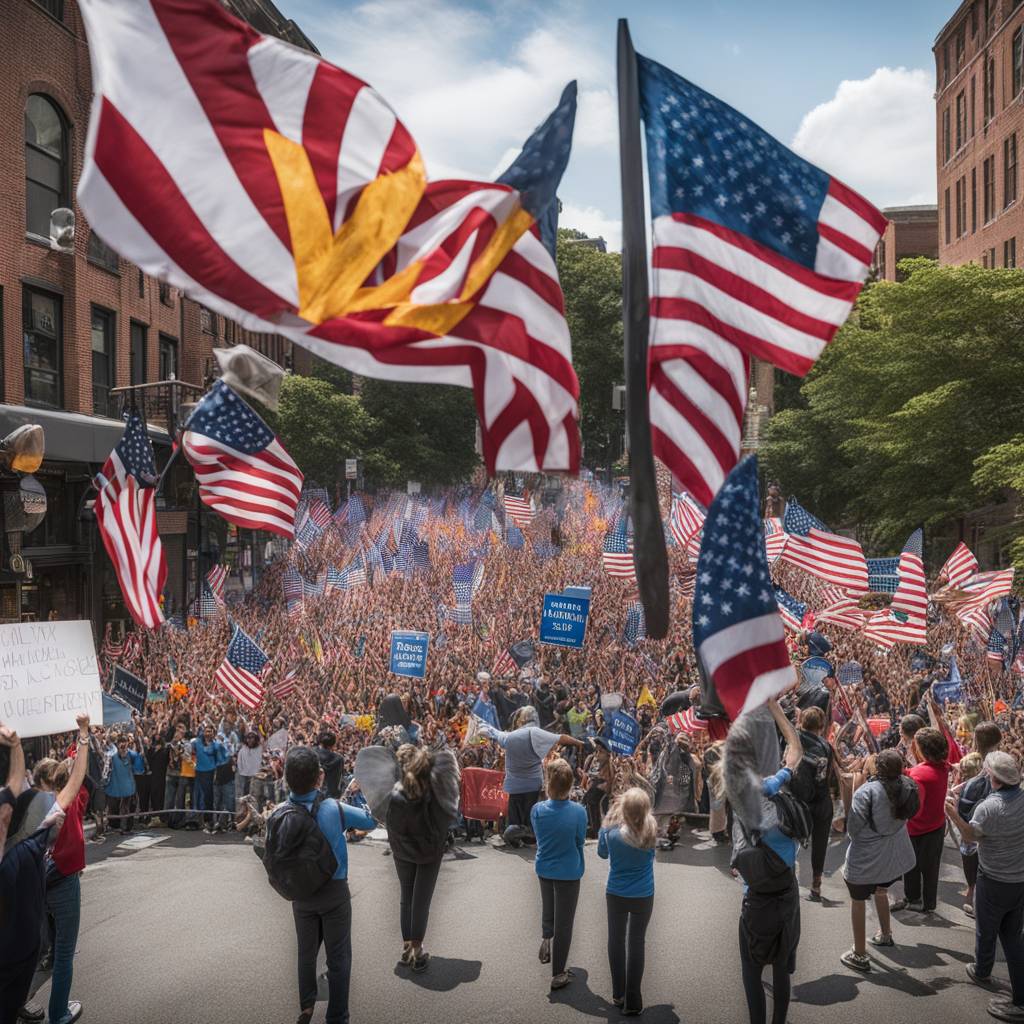Hillary Clinton returned to Wellesley College to celebrate the opening of a research and study center named after her, where she moderated a panel on democracy at a crossroads. However, despite being seen as a campus icon, she faced protests from students who criticized her legacy. Some protesters were escorted out of the event, while others expressed their displeasure at her presence through signs and chants. The protests were in response to Clinton’s recent statements regarding the Israel-Hamas conflict, which many students at Wellesley disagreed with.
Clinton has often faced protests throughout her career, including at Columbia University where she currently teaches. Despite this, Wellesley has traditionally been a supportive space for her, even though some students have criticisms of her actions and statements. The current generation of Wellesley women, in particular, have shifted to the left and are more critical of her positions on certain issues. Despite this, many students still appreciate Clinton’s accomplishments and advocacy for women, children, and the LGBTQ community.
Tensions at Wellesley have also arisen around the Israel-Hamas conflict, with some students feeling that criticism of Israel is not being adequately addressed. Faculty members have expressed concern over the lack of student protests on this issue and have sought to create spaces for students to speak out. The protests at the Clinton event were seen as an important part of the conversation on campus, highlighting the need for diverse perspectives on global issues and politics.
The new Hillary Rodham Clinton Center for Citizenship, Leadership, and Democracy at Wellesley seeks to advance Clinton’s ideals of civic engagement and leadership. The center will host faculty research, a civic action lab for students, and an annual summit to discuss global issues. The inaugural summit featured panelists such as Nobel Peace Prize laureate Leymah Gbowee and former U.S. ambassador to Ukraine Marie Yovanovitch, and addressed concerns about the regression of women’s rights worldwide.
Despite the protests and controversy surrounding Clinton’s visit, many students at Wellesley still appreciate her legacy and advocacy work. Some expressed sadness at the protests and believed that the energy could be better channeled into productive work. Faculty members at the Clinton Center hope to foster difficult conversations and open dialogue on campus, encouraging students to use their voices while also considering other perspectives.
Overall, the reception of Hillary Clinton at Wellesley College was mixed, reflecting the complex feelings among students and faculty towards her. While some continue to admire her accomplishments and advocacy, others are critical of certain aspects of her career. The protests at the event highlight the diverse opinions and perspectives on campus, emphasizing the importance of open dialogue and engagement with global issues.








